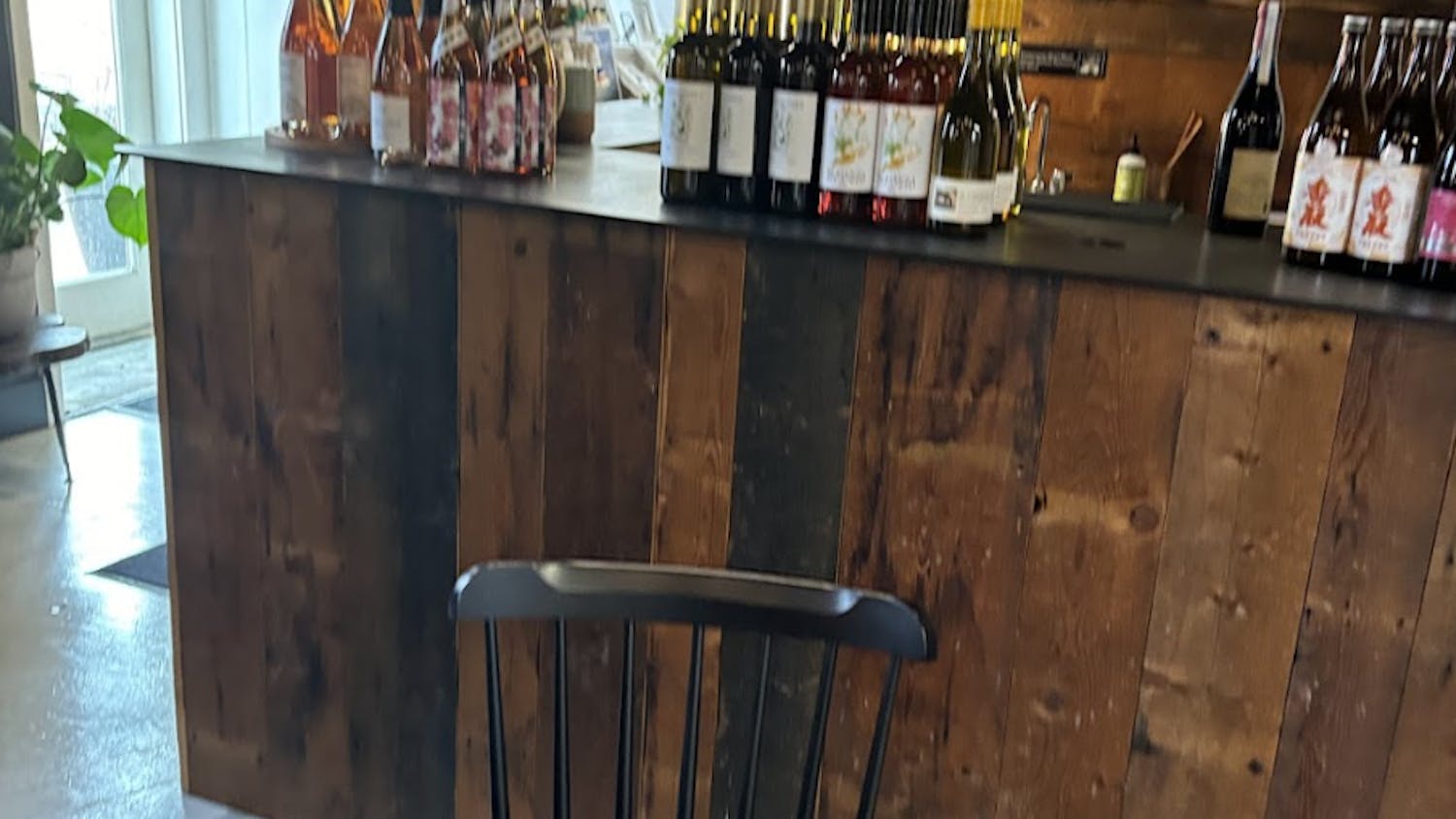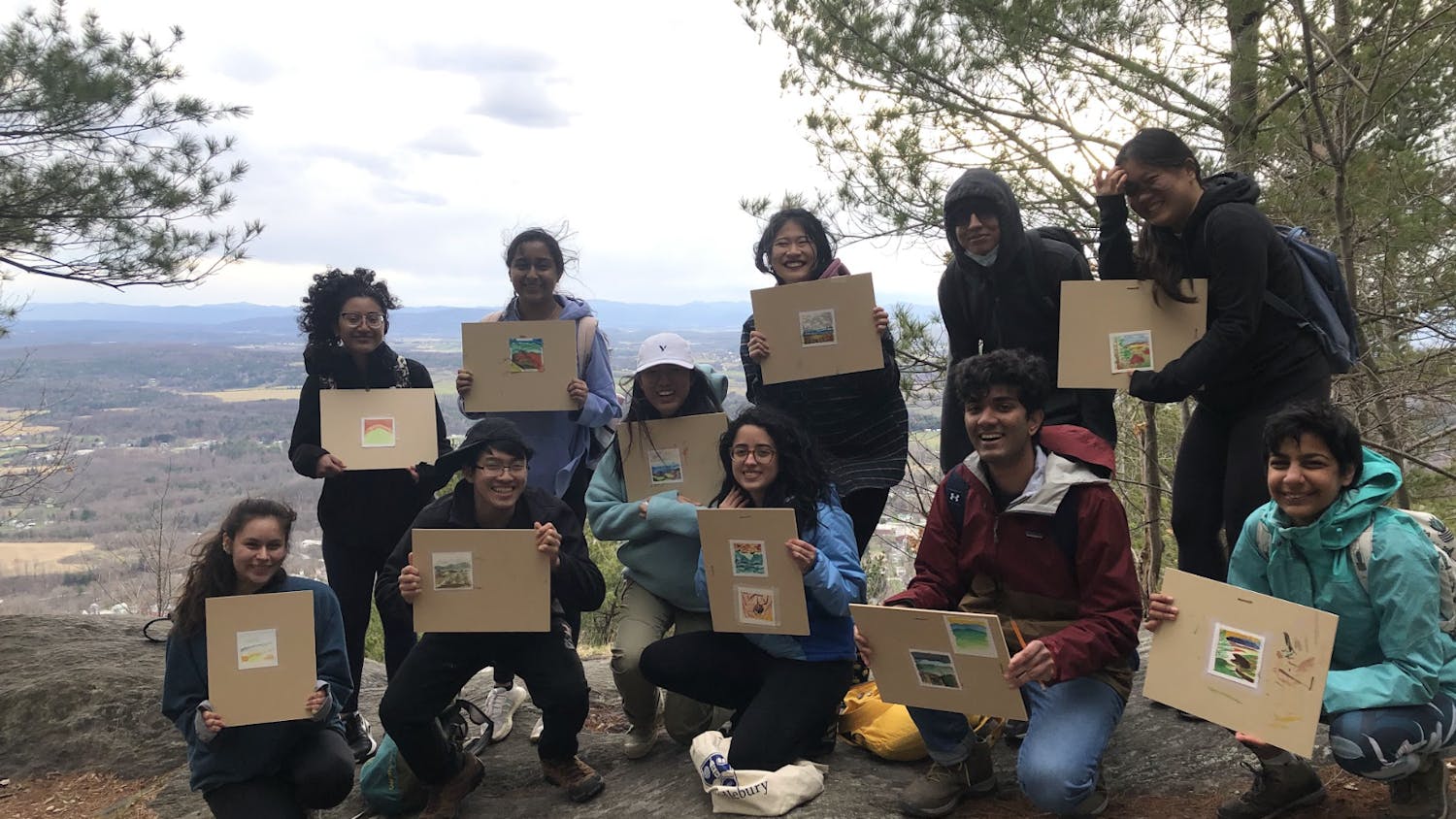The average age of a Peace Corps volunteer, according to the organization, is 28, and only seven percent of the volunteers are over the age of 50. But that didn’t stop Middlebury resident Paul Viko from setting off for Moldova, a small Eastern European country nestled between Romania and Ukraine, at the age of 74.
Viko, now 82, remembers a conversation with a young woman during the early stages of his first Peace Corps trip.
“‘How does it feel to be as old as you are, the oldest one here?’” the young woman inquired. “I remember replying, ‘You can call me older but don’t call me oldest!’”
Indeed, Viko has never found that his age has been a hindrance to his volunteering activities, even when they have involved physical labor as they did while working in Japan. He works out at a fitness center three times a week, and is in fair shape for a man of 82.
“[Despite] my age, I could keep up with [the other volunteers],” said Viko. “I was doing the same stuff everybody was doing.”
This was no small feat. In August of 2011, for example, six years after his 27-month stint with the Peace Corps in Moldova, Viko joined seven other volunteers in Japan to assist the victims of the March tsunami and earthquake.
They slept for the first night on the floor of an office in Tokyo, and then moved 250 miles north to a Buddhist temple just outside of the city of Sendai for the remainder of their four weeks in Japan.
The volunteers spent most of their time outside, doing physical labor in order to clear fields of rocks to convert to farmland, and even clearing a mountain path from top to bottom in case of a fire or flood.
At the end of the workday, the volunteers took turns going to town to purchase food and to attend the public bathing facilities.
Viko’s diet consisted almost entirely of rice and soup. He ate with chopsticks, which was not always easy.
“[The others] felt sorry for me because I wasn’t very good at it,” said Viko, chuckling.
Aside from working in Japan and volunteering within the Middlebury community, Viko has also spent five of the last 10 years using skills he acquired over the course of a lifetime of work in corporate America to challenges within native populations in Moldova, Iraq and Mozambique.
He has spent extended periods of time in Mozambique with an organization called World Vision in 2005, and in Iraq with “Volunteers for Economic Growth Alliance” in 2006, as well as in Japan and Moldova. “During my professional career, although I had traveled considerably, including overseas, I had minimum time to contribute my time to helping others and now was the time to so.”
Viko’s experiences have not always been perfectly smooth. In 2005, while in Mozambique, Viko was a passenger in a car that rolled over twice. He was transported by jet to a hospital in South Africa, where Viko learned that he had broken his neck in two places. He can no longer move his neck to its full extent. In spite of his injury, Viko walked onto the jet holding his jaw together.
Viko remains unfazed by the dangers of his charitable work.
“I really enjoy what I do,” he said. “I enjoy working with people, particularly with people who are not part of my world. I don’t know these people; I don’t know these countries; I don’t know these worlds.”
Despite being the only American present in his camp in Mozambique, Viko felt, after only a day, that he was home.
“I was foreign, but I was comfortable. I probably didn’t feel comfortable to them, but I was comfortable.”
After serving in the Korean War as a Navy pilot, Viko graduated from the University of Utah with three degrees, including a Masters in Mechanical Engineering. Over the next 40 years, he worked for American Standard, American Express and Hanover Direct.
In 1997, Viko and his wife of 29 years, with whom he has two children and from whom he is now legally separated, settled in Cornwall, Vt., before moving to Middlebury in 2012.
Viko’s extensive volunteer work in Middlebury began between 1998 and 2001 when he taught beginning math and beginning algebra at the Community College of Vermont.
“It was interesting because I had kids [who] were just graduating from high school, but who didn’t know basic math, and then I had a 55-year-old woman who was coming in because . . . she felt embarrassed [that] her [high school-aged] kids knew more about basic math than she did.”
During that same time period, Viko served as the program co-administrator for the Employment Associates division of the Counseling Service of Addison County. There, Viko worked with both physically and mentally handicapped people, teaching them the skills necessary to hold a job.
“I’ve taught people how to wash dishes, how to clean offices, how to serve food in hospitals, . . . [even] how to assemble pewter [objects],” said Viko.
The job required Viko to work on-site; for example, he spent time at the Porter Hospital kitchen, teaching one individual “how to prepare the trays that we would take to the patients.”
Clients of his have also included dining hall workers at the College. “One [girl] wanted to eat food off the plates that were coming back to the dish washer, and so we had to help her learn that she couldn’t eat that food.”
Viko’s involvement with the College has extended in the past to the Friends of International Students program. He has “hosted” three different students.
“Typically we would take the students where they want to go, when they want to go,” said Viko.
His first two students, from Pakistan and China, he came to know jointly over a period of four years. “[Yunfei Ren], from China, liked to cook, so he would come over and cook with my friends. And that was kinda cool.”
“He was generous in offering his help,” said Yunfei Rend ’10, one of Viko’s former students. “I didn’t have a car nor could I drive. So he’d help me move in between academic years and offer to provide storage space in his basement. He never asked for anything in return.”
Together, Viko and Ren attended Chinese festivals at the College on more than one occasion, as well as hockey games and concerts.
“He made me feel connected to the local community,” said Ren. “Which frankly, for international students was a rare opportunity.”
Beyond these connections, Viko continues to get to know local students through a reading program called “Everybody Wins” at the Mary Hogan elementary school.
Viko was partnered with one young lady for four years, during which time he enjoyed books such as The Secret Garden and Harry Potter.
“We see the students growing,” said Viko. “She was in fourth grade when I started and she graduated and went into the seventh grade.”
Viko now has a new student, and he continues to spend the lunch hour at the elementary school, reading to his student while she eats lunch, and then taking a turn as listener.
In Middlebury, Viko has worked as an usher at the community theater as well as with the Charter House, which is a transitional shelter, housing residents for up to six months. Viko volunteers his time to man the house on Saturday and Sunday mornings, as well as one night a week and whenever the house is in urgent need of a volunteer.
On Friday evenings, Viko helps out serving food to over 100 community members at the Community Supper at the Congregational Church of Middlebury, and cleans up afterwards.
Viko’s committment to service locally and abroad has made an indellible mark on each of the lives he has touched. Yet Viko’s days of service are far from over; in the years to come, Viko plans to continue to give his time to those who need it.
1 in 8700: Paul Viko
Comments



